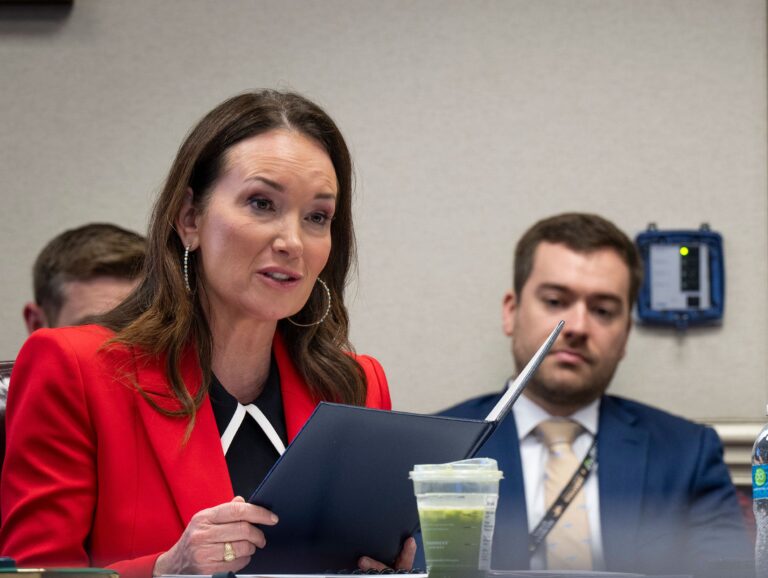During remarks Tuesday in Washington, D.C., Agriculture Secretary Brooke Rollins outlined a vision for the future of farm labor in the United States. Rejecting the possibility of legal status for undocumented agricultural workers, Rollins instead floated a plan for “mass deportations … in a strategic and intentional way” and suggested replacing the current labor force with “100 percent American participation.”
Rather than relying on the estimated 50 percent to 75 percent of farmworkers who, according to the U.S. Department of Agriculture, are undocumented, many of whom perform seasonal, physically demanding labor, Rollins appeared to propose filling the gap by utilizing 34 million “able-bodied” Americans enrolled in Medicaid.
USDA SEC. BROOKE ROLLINS:
“There will be no amnesty, the mass deportations continue but in a strategic way, and we move the workforce towards automation and 100% American participation.” pic.twitter.com/Yjd8qrzlES
— Charlie Kirk (@charliekirk11) July 8, 2025
As of March 2025, over 78 million Americans were enrolled in Medicaid and the Children’s Health Insurance Program, according to the Centers for Medicare & Medicaid Services. Of those, 71.3 million were enrolled in Medicaid, including over 37 million children, representing nearly half (47.5 percent) of all enrollees.
The farm sector has warned that mass deportations of agricultural workers could severely disrupt the U.S. food supply, and at one point, Rollins had tried to coax President Donald Trump to lift the ICE crackdown on agricultural and hospitality workers. Yet while the Trump administration initially signaled in June that it could pause enforcement raids at some farm worksites, it has since reversed that position.
At Tuesday’s news conference, Rollins also stated that the U.S. Department of Agriculture would restrict farmland purchases by “foreign adversaries,” including China, and would move to terminate existing agreements and contracts with individuals and entities from those nations.
When asked about land currently owned by Chinese-owned companies like Syngenta and Smithfield Foods, Rollins said the administration is still evaluating its options.
“You’ll likely see an executive order on this very soon from the White House and we’ll be looking at multiple different authorities within the federal government to begin to claw that back,” Rollins said.
According to the National Agricultural Law Center, 26 states have enacted laws that restrict or prohibit foreign businesses, governments, or nationals from owning private farmland — though some of these measures have faced legal challenges.
Foreign entities own roughly 3.4 percent of all U.S. farmland, with Canada holding the largest portion at around 30 percent, based on data from the U.S. Department of Agriculture.


:max_bytes(150000):strip_icc()/Sunrise-Grandview-Iowa-Mature-Corn-2fd1fccbf3b145a5b67340051135fc14.jpeg)
:max_bytes(150000):strip_icc()/AlexPaulMitchek-45453aa7f31a43bf82a6794ea2682f4b.jpg)
:max_bytes(150000):strip_icc()/BloombergContributor-2197125766-3217c07cd0984adcb474c357b0e75856.jpg)



:max_bytes(150000):strip_icc()/IMG_5402-2000-b4d3b346719e43ba9762f243e32696a4.jpg)
:max_bytes(150000):strip_icc()/Corn-and-soybeans-August-2025-Indiana-c57b46534cdf48849ebf4366bd69e0fe.jpg)
:max_bytes(150000):strip_icc()/TysonFoodsLogoBlue-1-9a9c4e39ca9240679f0d2021d1ca4c9e.png)